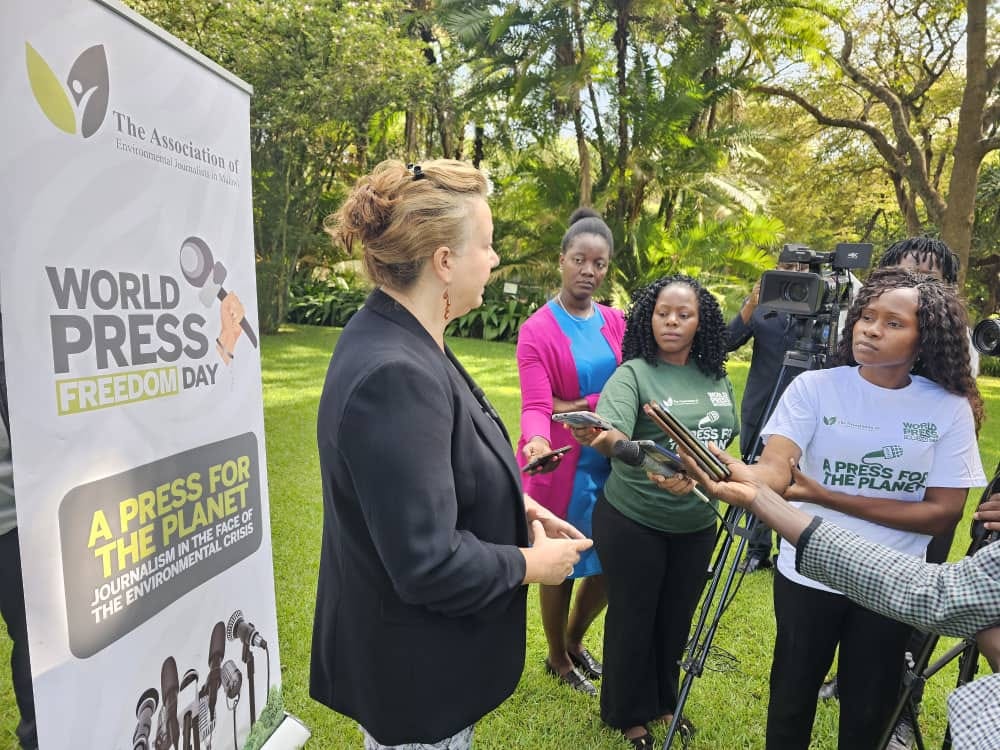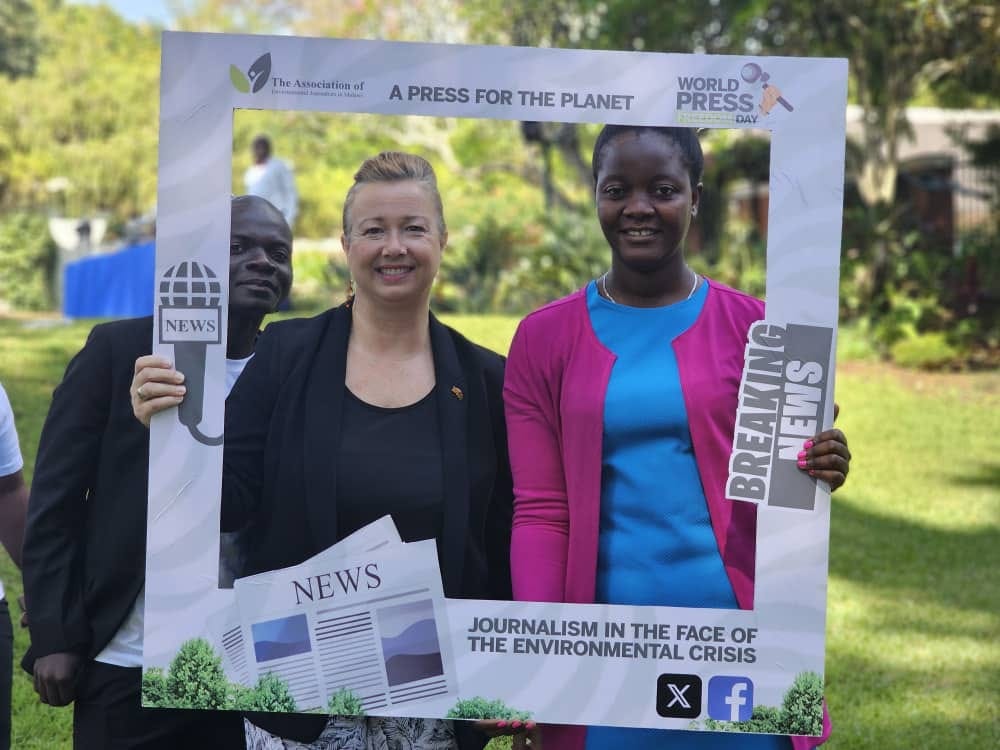Environmental Journalists Urged to Hold Leaders Accountable on Green Agenda
The call came during an event organized by the Association of Environmental Journalists (AEJ) in Malawi and the British High Commission on Tuesday to commemorate World Press Freedom Day.
LILONGWE, Malawi - Ahead of Malawi's 2025 general elections, environmental journalists are being called upon to prioritize the nation's ecological challenges and push political parties to present clear plans to address issues like deforestation, plastic pollution and climate change impacts, writes Winston Mwale.
The call came during an event organized by the Association of Environmental Journalists (AEJ) in Malawi and the British High Commission on Tuesday to commemorate World Press Freedom Day.
The event, themed "Environmental Journalism: A Press for Planet," underscored the vital role of media in protecting the environment.
British High Commissioner to Malawi Fiona Ritchie emphasized that the UK government's foreign policy priorities, both globally and in Malawi, are focused on tackling corruption, addressing climate change, promoting environmental management, and upholding press freedom.
"It's been my privilege to meet so many journalists working on these difficult issues in Malawi. My message to you is keep doing what you're doing. I know it's really difficult, but the stories that you have to tell and the investigations that you're carrying out are really important in getting the message out to ordinary people so that they can understand the issues, but also in holding those people to account who are contributing to Malawi's deforestation," Ritchie told the journalists.
Ritchie commended the UK's support for the AEJ through initiatives like the Modern Cooking for Healthy Forests program, which has provided training and capacity building for journalists and media houses.
However, she acknowledged the security risks reporters face when tackling sensitive environmental topics.
Mathews Malata, president of the AEJ, highlighted Malawi's dire environmental situation, with all 23 districts declared disaster zones due to deforestation, poor waste management, plastic pollution, and climate change-induced disasters.
"That really calls for active robust but also consistent engagement of the media to continue pushing relevant messages across to all populations so that we can collectively work together in building the resilience of our nation," Malata said.
However, Malata expressed concern over the "exploitation" of young journalists, with many working as unpaid volunteers or underpaid interns for years, hindering their ability to effectively cover important issues.
He called for stronger policies to protect journalists' welfare, especially those tackling high-risk assignments like deforestation.
Looking ahead to the 2025 elections, Malata urged AEJ members to seize the opportunity to hold political parties accountable for their environmental platforms and demand clear implementation strategies.
"We should see politicians setting the green agenda for now and also for the future generations because these are the people that make all these critical and vital decisions whenever they are in offices," he stated.
"We need to ask hard questions and they need to come up with clear stories in terms of how they're going to address most of the environmental challenges that we're experiencing at the moment. And they are deepening with time, and we can't keep silent as the media."
The AEJ has supports environmental reporting through initiatives like the Forestry Accountability Journalism Initiative in Malawi (FAJIM), which provides grants for journalists to cover these issues extensively, as most media houses do not fund environment-related projects.
Two grantees, Tionge Hara from AfricaBrief and Bobby Kabango from The Nation newspaper, spoke on behalf of FAJIM grantees.
Tionge, AfricaBrief’s Chief Reporter, shared her inspirational story of overcoming obstacles as a female investigative journalist through perseverance and a commitment to truth.
Despite facing threats, attempts to impede her work, and bribery offers, Hara persisted, driven by her passion for journalism.
A major challenge, she said, has been accessing information, a fundamental right for the media often called the "fourth estate."
Tionge's tenacious reporting has earned her multiple accolades, including the Voice of Accountability Award, Purple Innovation Award, Africa-China Reporting Award, and being named Best Business and Economics Journalist of the Year in 2022 by MISA Malawi.
"These awards and grants show how important it is for journalists to investigate and uncover important issues. They help hold people and organizations accountable," Tionge said.
"Receiving these honors has made me even more determined to keep pushing boundaries and telling stories that can make a positive change in our society."
As Malawi marks World Press Freedom Day on May 3, a global event raising awareness about the importance of press freedom, Hara called on those responsible for disseminating information to cooperate with journalists to enable them to do their jobs effectively.
With environmental issues taking center stage, the media's role in promoting transparency, accountability and driving positive change has become increasingly crucial, according to the speakers at the event.





